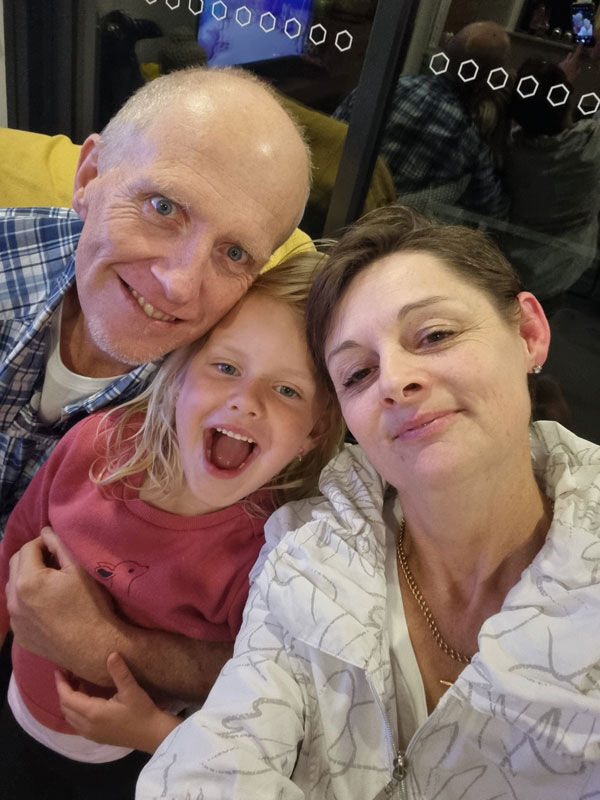Ask Paul: How can we switch to part-time work by 55?
Dear Paul,
We own our hobby farm valued at about $1.2 million and owe $340,000 on an investment property that is in a beach-side town and rented out as an Airbnb. It is valued at about $450,000.
We have $300,000 in combined superannuation at ages 47 and 49. We have no dependent children and earn $180,000pa combined. We have little savings at the moment and a small portfolio in crypto.
We both want to be able to work part-time by age 55. What would be our best option to ensure a financially stable future for us?
We are unsure if we should buy another property if the prices continue to fall in the next couple of years, add more to our crypto portfolio or bulk up super. What would be your advice, please? - Kylie

The good news, Kylie, is that in your late 40s you have built up a solid, diversified base of wealth. A fully paid off home is a great effort and you have equity in your investment property. I'm very pleased to see the $300,000 in super. Super is a terrific vehicle for your future financial stability.
I can't see much point in paying off more than a minimum on your investment property. Beach-side towns have performed well during this strange COVID period and I am sure it is rented on a regular basis.
After expenses and interest, you may lose a little on this property or make a little - I'm not much fussed about this. If you lose a little, it is tax deductible. A small profit, I suspect, would be offset by depreciation on the property. By age 55, inflation will have reduced the real value of your loan, rents will move up with inflation and history suggests the property will be throwing off surplus income to help with your spending needs when you move to part-time work.
My views on crypto have been the same for the past decade. Despite stupendous profits being made by the creators of cryptocurrency, I don't see many investors making anything. If anything, it is about losses.
I really get the value of a globally accepted, stable, secure and strongly backed cryptocurrency. I'd love to have a credit card linked to this so I can buy goods and services anywhere in the world without huge bank and foreign currency transaction costs. But what we have now is not the solution.
As it stands now, crypto looks more like the Wild West. Its volatility and lack of acceptance make it near useless. In an unregulated sector, the collapse of FTX has not surprised me in the least; more will fail.
The whole idea of Bitcoin feels to me more like a cartoon series. I read on Digiconomist, the platform that has a bitcoin energy consumption index, that it currently takes some 1449 kilowatt hours of energy to produce a Bitcoin, and that Bitcoin has an annualised carbon footprint comparable to the combined footprint of Serbia and Montenegro.
Anyway, enough of crypto. I am a dinosaur. I do know something good will develop out of it, but this is all too silly for me right now. I'll leave investment decisions in that area to you.
Let's turn to two genuine wealth-creation areas: super and property. A large, low-cost, diversified super fund is an excellent long-term wealth creation vehicle. With $180,000 in total income, I think you would both be paying around 34.5% tax (including Medicare levy).
Money salary sacrificed into super would be taxed at 15%, giving a substantial tax saving of 20% on each dollar you put into super, up to the maximum deductible amount of $27,500 each and, of course, very low rates of tax on earnings inside the fund.
I do like the idea of you topping up above the compulsory employer rate of 10.5%. The problem, of course, is you can't touch your super until you get to your preservation age and, given you are in your 40s, I suspect this means 60.
In all likelihood, your super could not be touched until then, but for all I know, rules may keep changing. I think you should see super as a "later in life" asset, providing wonderful financial security as you go to full retirement.
To go part-time at 55, obviously you will have that income. But to top it up will require "outside of super" assets for a number of years. One way to do this is to pay down the mortgage on your current investment property, but as I wrote earlier, this is probably not your most effective strategy.
You could build a portfolio of shares, and the dividends would be very handy at 55. Another investment property is also okay, but my concern is whether it will produce income for you by 55. You would have to run your numbers here. My concern is you have two geared properties producing not enough income to live on and super not yet available to you.
A final thought is whether you will continue to live on your hobby farm. Selling that and living in a lower-value property as you approach 55 would put a different slant to your plans.
I'd sit down and put together a plan that takes you to age 55 and beyond, a key part being your intended lifestyle income. Then the question of how to invest becomes much simpler. You just need to plan investments that provide enough income when you need it.
Get stories like this in our newsletters.



